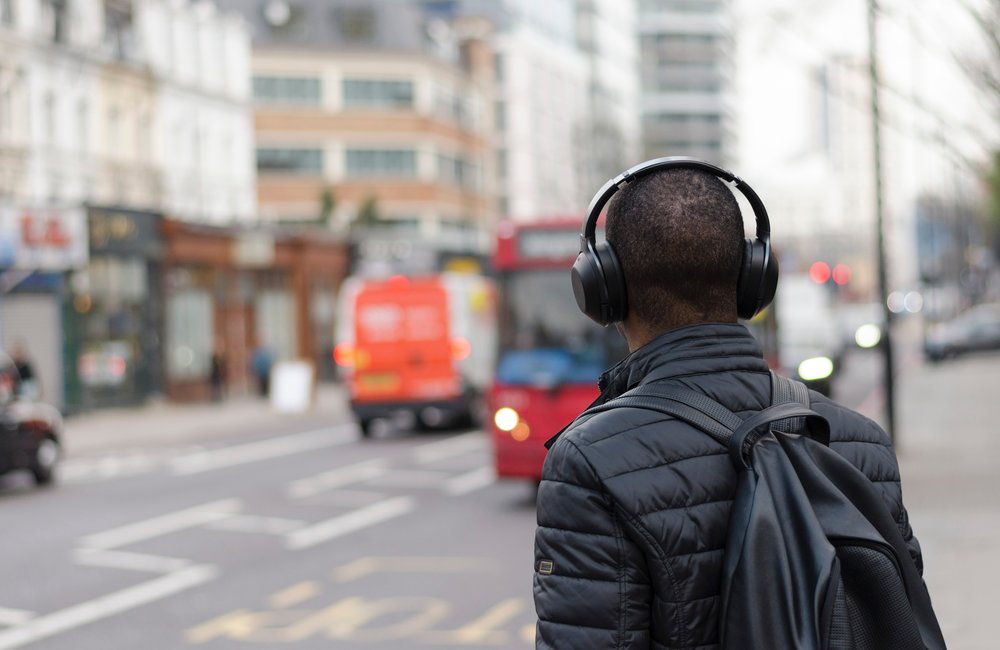
Stress is everywhere. From paying bills on time to meeting important deadlines at work - acceptable stress levels motivate you to get tasks done. But too much stress - and for too long - can lead to detrimental health effects, both mental and physical. In this post, we'll explore the effect of stress on the immune system and how music can reduce the impact of unhealthy stress on the immune system.
Cortisol and epinephrine (also called adrenaline), two key hormones released when encountered with stressful stimuli (also know as stressors), are particularly well-known for their roles in “Fight or Flight” response. The “Fight or Flight” response, an evolutionary trait used in times of peril, is mediated by these hormones, which prime the body for combat or quick escape.1 Our early ancestors used the “fight or flight” response to aid in life or death situations regularly, such as encountering predators or natural disaster. Despite drastic lifestyle changes since this primitive era, our stress-response system is still a commonly engaged in modern society. We may not need to worry about getting mauled by a bear in the middle of town, but we do tend to fret over things such as work, exams, and the fast-paced nature of everyday life.
Although normal surges of cortisol are helpful in going about one’s day, excessive and prolonged levels of cortisol can lead to adverse health effects. A major health risk of high cortisol levels is the potential for immune system suppression. Short bursts of stress (also known as acute stress), like giving a public speech, can actually temporarily boost the immune system. If short bursts of stress become a more long-term problem however, this may be diagnosed as chronic stress. Chronic stress can lead to a decrease in immune system function, which contributes increased disease vulnerability.2 Lengthy periods of stress can increase the chance of developing illnesses and can even increase the time for the body to recover from a disease.3 In this article, we’ll look at how music can alleviate stress, making music a simple and easy way to stave off stress-induced immune suppression.

In studies that investigated the correlation between stress and illness, results showed that people with higher stress levels tended to be more susceptible to developing disease. Research focused on diseases like Epstein-Barr virus (Mono) and Herpes zoster (Shingles), which lie dormant before the disease develops and symptoms become prevalent. A case-control study demonstrated that high stress levels were correlated with an increased chance of retriggering the inactive varicella-zoster virus, which causes shingles.4 In an Epstein-Barr study, West Point Academy cadets who were under heavy social/academic pressure were more likely to contract the disease, and were also more likely to be hospitalized for longer periods than those who were less stressed; the study also showed that stress also increased the likelihood of relapsing during recovery.5

Research on the immune system shows many functions of the immune system are weakened and reduced in an environment which induces chronic stress. For example, in caregivers for spouses with dementia, greater chronic stress and emotional anguish reduced the immune system response to influenza-virus vaccine (aka the common flu), a response necessary for the body to become immune to the disease.6,7
The study results indicate dementia can lead to negative health effects in caregivers, reducing their immune systems’ efficiency and making them more susceptible to illness. In previous posts, we’ve shown how music can alleviate the symptoms of dementia and Alzheimer's - music could also potentially help the caregivers reduce stress and boost their immune system.
Studies have also examined the negative role of stress in immune function in non-clinical groups, like students studying for tests and exams. One study showed how a mouth injury healed 40% more slowly during exam times for students than when they were on summer break.8 Research shows that when introduced to chronic stress, multiple roles of the immune system are compromised, leading to adverse health effects.

Music has been shown to reduce cortisol and the detrimental effects of stressors. In a research study on music and its effect on stress, college students were asked to complete a stressful task while having their cortisol levels recorded before, during, and after the test.9 The students were asked to speak, as well as complete mental calculations, in front of an audience. Results were recorded every 10 minutes, starting 20 minutes before the task, and the ending 60 minutes after the stress test was complete. The results showed that at each of the 8 sample points, the students who listened to music during the study had lower levels of cortisol than students who completed the entire trial in silence. The lower cortisol levels in music listeners shows promise that music can help reduce stress levels, regardless of initial cortisol levels.
Even for surgery, research has found that music can lower a patient’s cortisol levels during the operation. In a research study of 60 patients who needed surgery, patients who listened to music through headphones during the surgical procedure had lower cortisol levels than those who didn’t.10 The study noted that patients given the option to choose their music type had lower cortisol levels than those who were not given the option to pick, suggesting that one’s personal preference has an effect on how music affects one’s body. The results show that even in as stressful of an environment as surgery, music can still help reduce anxiety in a patient.
While these studies use one marker of the stress response, cortisol, they suggest that music’s ability to blunt the hormonal stress response could act help counteract later immune dysfunction. The immune system is essential to functioning at our fullest potential every day, and any compromise could lead to further disease susceptibility. As mentioned in a previous article, the health benefits of music doesn't stop at supporting the immune system. Music can play an important role in health including getting better sleep, improving focus and motivating you to power through a workout. If you're looking for ways to reduce your stress with music, you could try , a personalized music intervention designed to help you relax before sleep.
Listening to music is a quick, easy way to reduce stress and, in doing so, keep your immune system humming along!
References
1. Bergland, Christopher. "Cortisol: Why “The Stress Hormone” Is Public Enemy No. 1." Psychology Today, 22 Jan. 2013, .
2. Segerstrom, Suzanne C., and Gregory E. Miller. “Psychological Stress and the Human Immune System: A Meta-Analytic Study of 30 Years of Inquiry.” Psychological bulletin 130.4 (2004): 601–630. PMC. Web. 16 Aug. 2017.
3. Ronald Glaser, and Janice K. Kiecolt-Glaser. "Stress-induced Immune Dysfunction: Implications for Health." Nature Reviews Immunology 5.3 (2005): 243-251. Web.
4. Irwin, Michael R. et al. “Effects of a Behavioral Intervention, Tai Chi Chih, on Varicella-Zoster Virus Specific Immunity and Health Functioning in Older Adults.” Psychosomatic Medicine 65.5 (2003): 824–830.
5. Kasl, Stanislav V., Alfred S. Evans, and James C. Niederman. “Psychosocial Risk Factors in the Developmental of Infectious Mononucleosis*.” Psychosomatic Medicine 41.6 (1979): 445–466.
6. Kiecolt-Glaser, J. K. et al. “Chronic Stress Alters the Immune Response to Influenza Virus Vaccine in Older Adults.” Proceedings of the National Academy of Sciences 93.7 (1996): 3043–3047.
7. Vedhara, K. “Chronic Stress in Elderly Carers of Dementia Patients and Influenza Vaccine.” The Lancet 353.9168 (1999): 1970.
8. Marucha, Phillip T., Janice K. Kiecolt-Glaser, and Mehrdad Favagehi. “Mucosal Wound Healing Is Impaired by Examination Stress.” Psychosomatic Medicine 60.3 (1998): 362–365.
9. Khalfa, Stephanie & Dalla Bella, Simone & Roy, Mathieu & Peretz, Isabelle & Lupien, Sonia. (2003). Effects of Relaxing Music on Salivary Cortisol Level after Psychological Stress. Annals of the New York Academy of Sciences. 999. 374-6. 10.1196/annals.1284.045.
10. Leardi, S., Pietroletti, R., Angeloni, G., Necozione, S., Ranalletta, G. and Del Gusto, B. (2007), Randomized clinical trial examining the effect of music therapy in stress response to day surgery. Br J Surg, 94: 943–947. doi:10.1002/bjs.5914